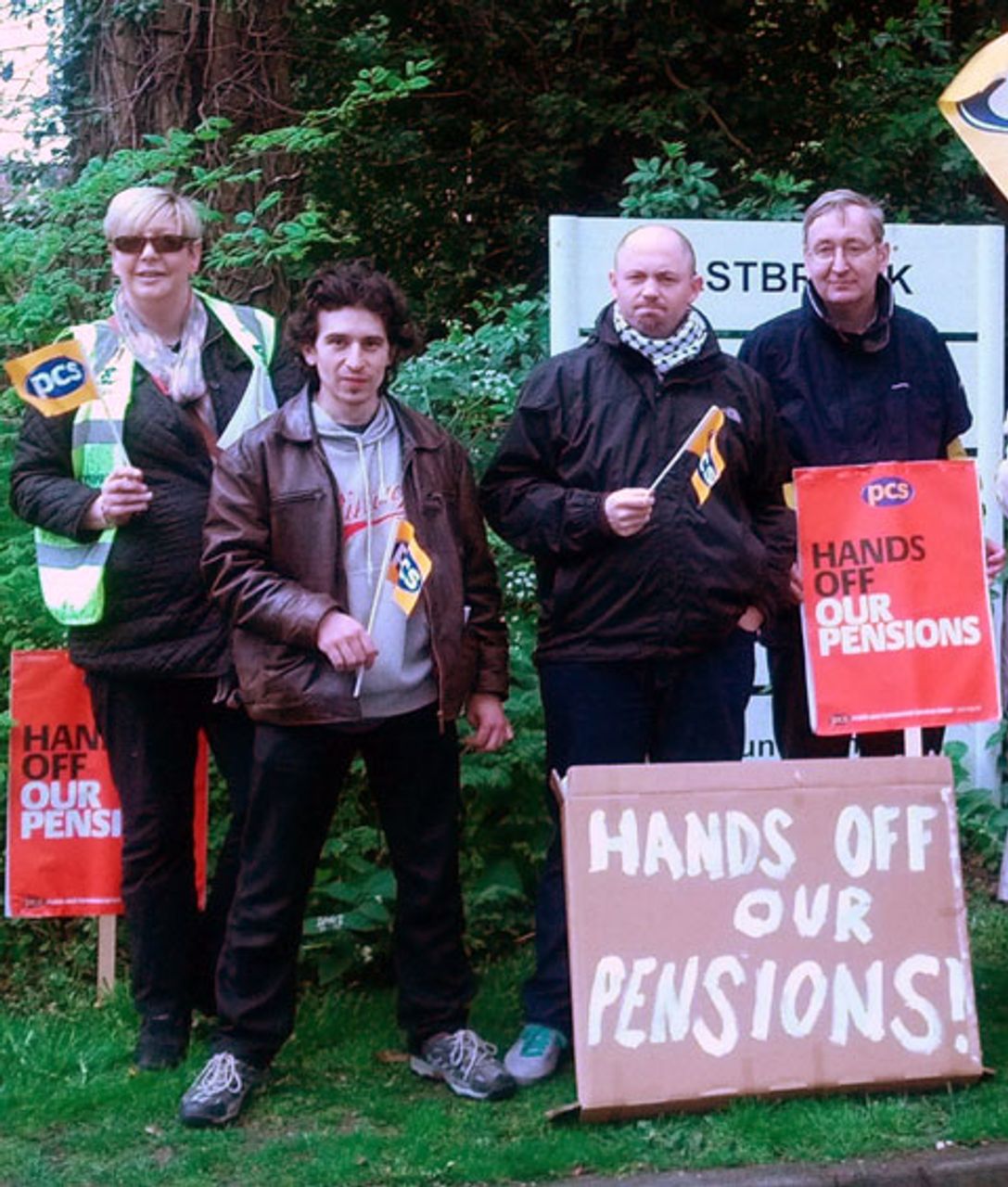World Socialist Web Site reporting teams spoke to some of those who participated in Thursday’s strike against government pension cuts.
 Striking local government workers in Cambridge
Striking local government workers in CambridgePeter in Salford in Greater Manchester has been working in the public sector since 2009.
He explained that like many of his co-workers, he is now paying more in pension contributions, only in order to receive a lesser pension. “Generally speaking I will be forced to pay more for my pension but at the end of it I’ll be receiving less”, he said, “And also I’ll be working longer as well.”
Peter said he was already paying far more into his pension scheme from this month: “In terms of pension contribution increases I’d say that I was paying £80 more a month now.”
Speaking about the austerity measures being imposed, he said, “Ordinary people are being made to pay for the mistakes that the bankers have made. If you cut jobs in the public sector, where are these people going to have to go? They are going to have to go into unemployment and benefits. And then you have to pay the money to pay benefits and it creates a vicious circle.”
Peter was generally supportive of the Public and Commercial Services Union (PCS) in calling a strike and blamed the government for seeking to “divide the unions”. When the WSWS reporters explained to Peter about the role of the unions, including the PCS, in winding down any serious struggle against the attacks on pensions, he replied that the union leaders had to be held accountable for what they did. “There are some circumstances where you can’t do stuff through the official channels, and in order to achieve the goal, you may have to take action”, he said.
Asked what he thought of workers acting independently of the union bureaucrats, Peter said, “The preferred method is to do everything in the legal and proper way. But if that’s inhibiting you from sending out the message and achieving the goal, then you have to look at doing other things.”
Another worker, employed in the public sector since 2007, said, “If you earn over £21,000 you are getting hammered by the pension contribution increases. One of my colleagues earns just less than £21,000, by no means a king’s ransom. And if we got a slight increase in pay, like the last time when we got a £250 pound pay rise, which is still way behind inflation, even that would take him over £21,000. Then he would be really hit by the pension cuts.
“There is also the inflation increase issue as well and the Value Added Tax rise to 20 percent, so all these little things contribute to a big attack on our incomes.
Alan said, “We all have to be on our toes and watch out for the gains we have made since the Second World War because they will be taken away from us by the people in charge. The government don’t seem to see what our concerns are. It is not always about the money. Money is a tool, but it’s about people’s lives and how we live”.
When asked what he thought about the trade unions entering into separate negotiation for each section of public sector workers, he said, “I think it would be better for us to take action all together. It is counterproductive for us not to take action together. Otherwise it’s a divide and conquer strategy. But at the moment this is the way it is. As you can see it’s a very small group of people here”.
Striking in Cambridge, David, a lecturer said, “The pension changes depend on the age of the workers involved. A lot of my younger colleagues will have to pay a lot more into their pension and get less out at the end and have to retire a lot later too. The combined impact is very serious.”
A PCS union local union representative said, “What we are here for is we don’t want to work longer, we don’t want to pay more and we don’t want to get less. On a personal level, I will have to work eight years longer, pay in an extra 28 pounds a month and receive significantly less at the end of it.
“The pension changes were imposed on us on April 1. The extra contributions have been taken out of my salary already.”
The rep played down the fact that Unison and other unions, such as the Association of Teachers and Lecturers, had already agreed in principle to the pension attacks by signing up to the governments Heads of Agreement” proposals. “Although we are very disappointed”, she said, this means “the unions can still agree to negotiate.”
Fill out the form to be contacted by someone from the WSWS in your area about getting involved.
